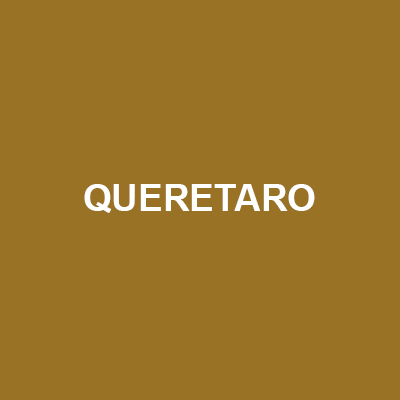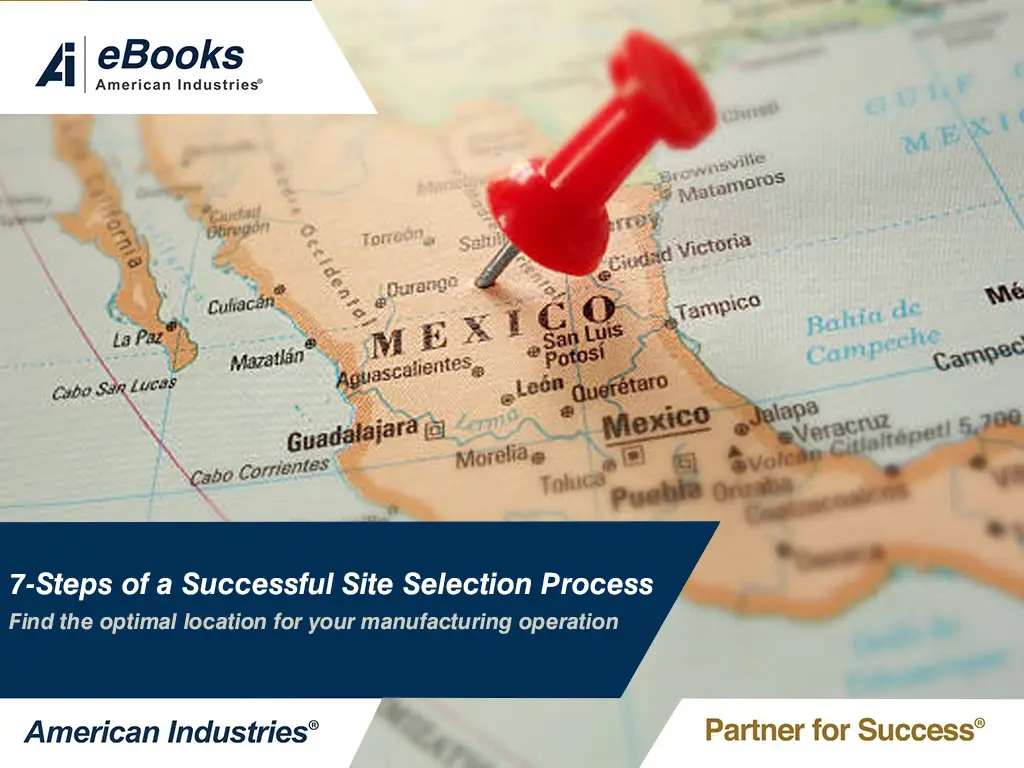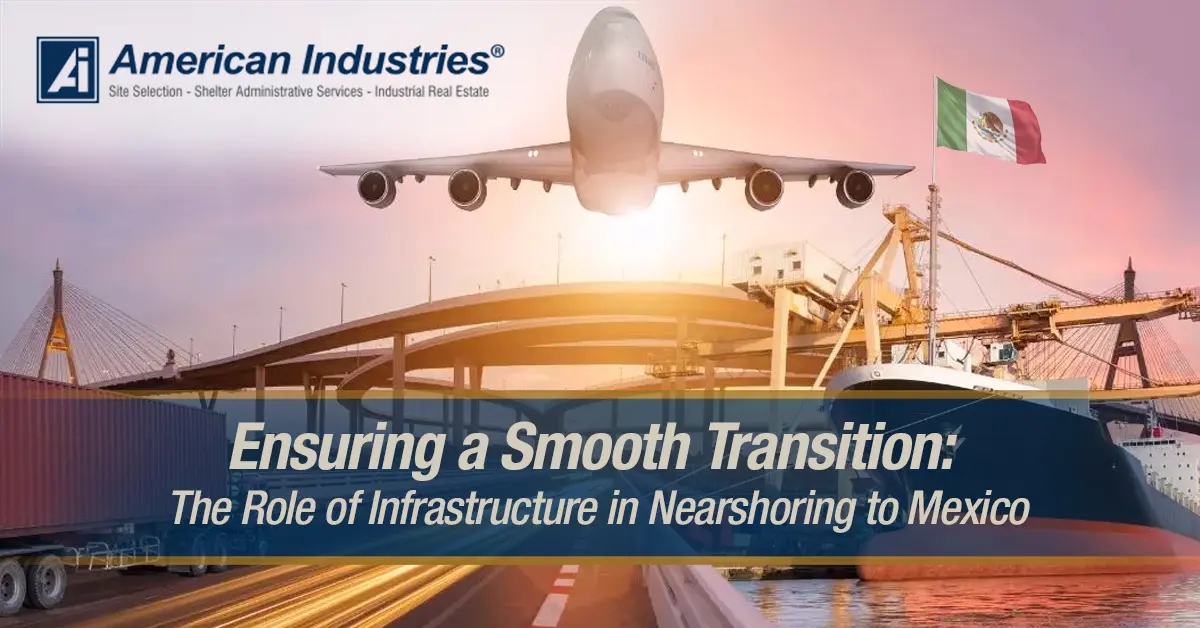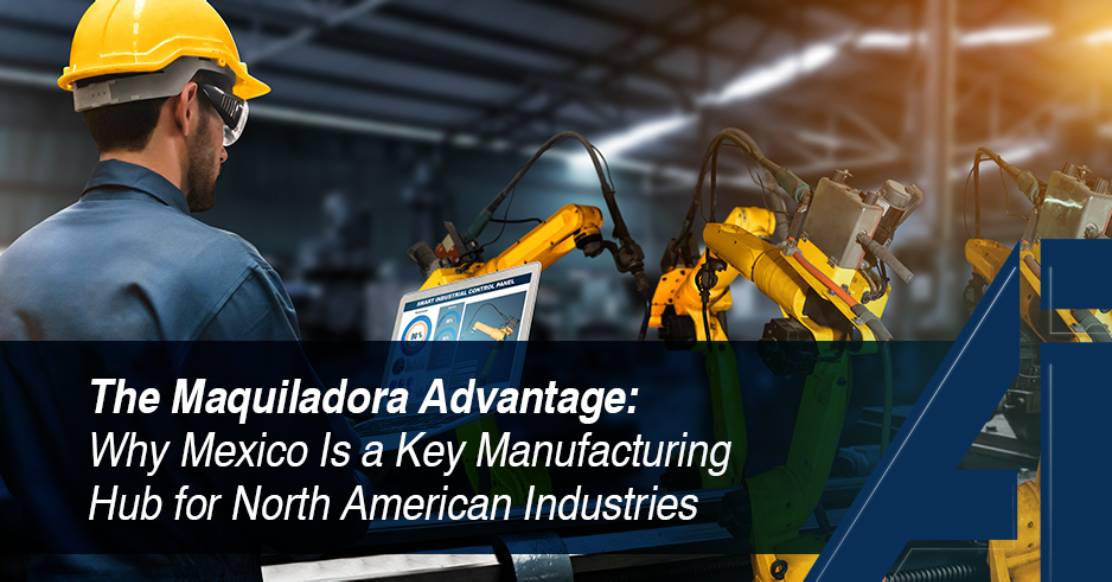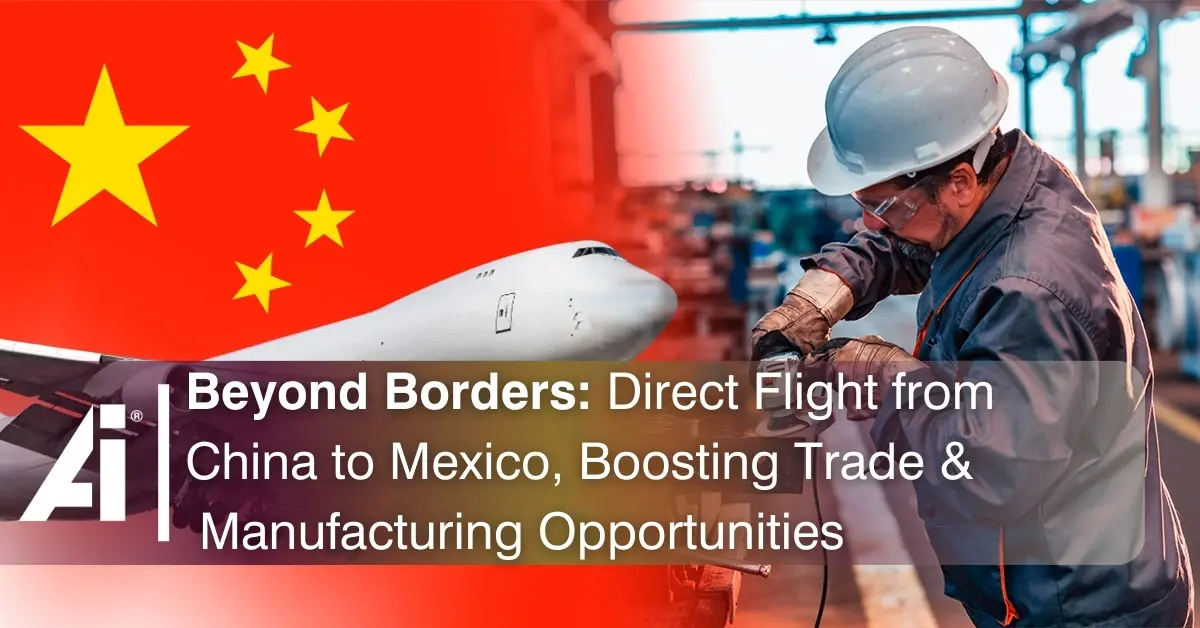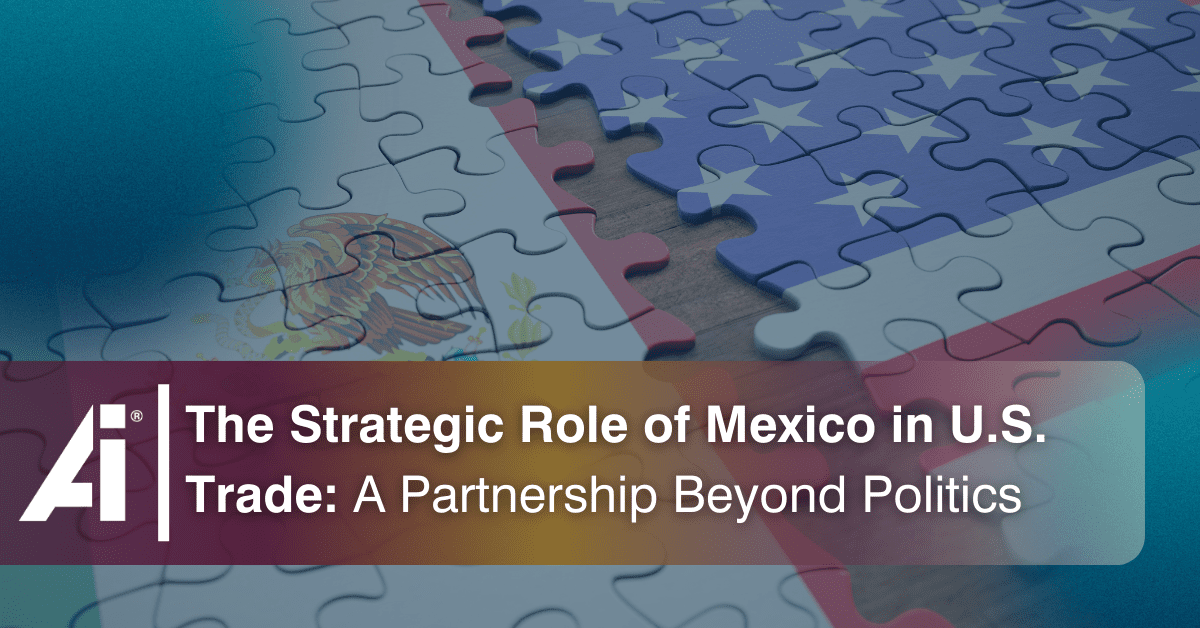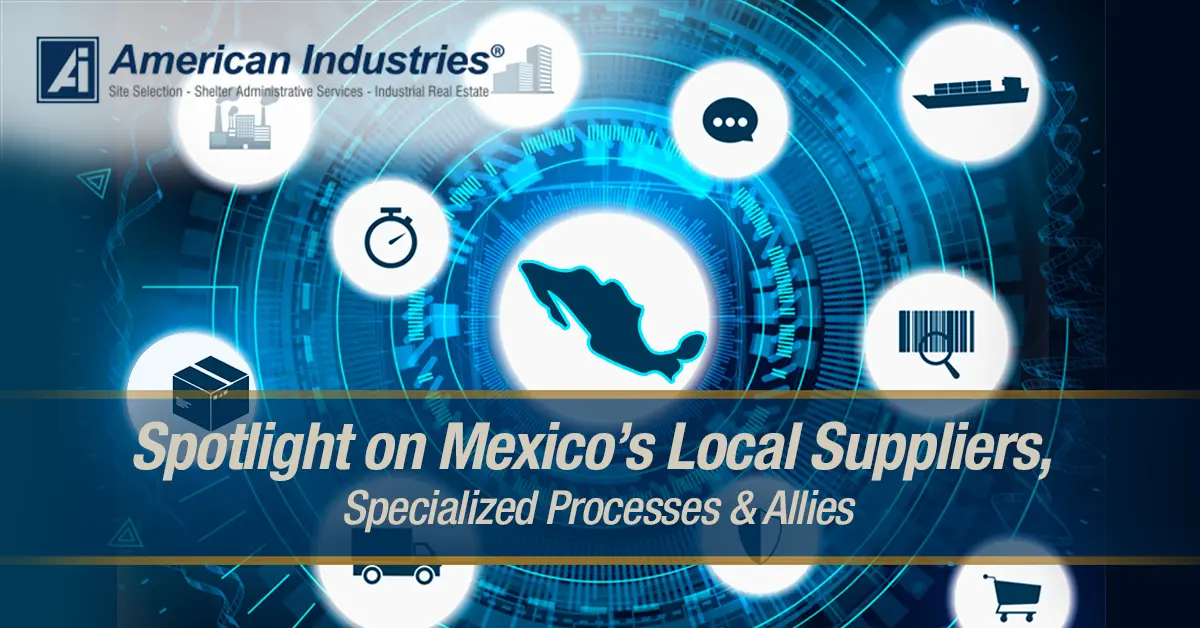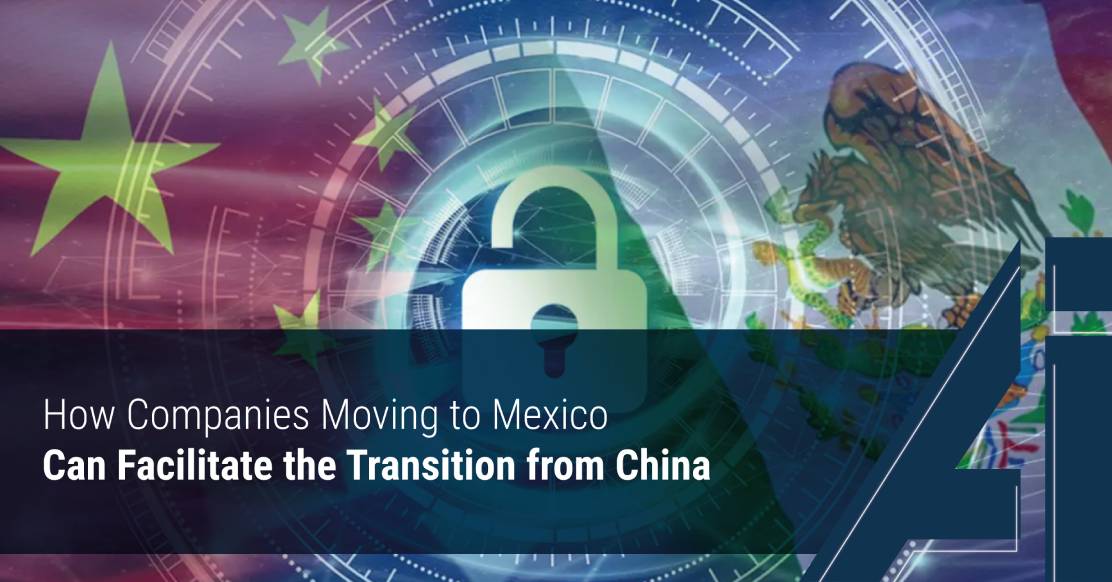Manufacturing in Mexico: Strategic Advantages for Your Business
Manufacturing in Mexico is a great option for companies looking to expand their operations. Due to its macroeconomic and political stability, low inflation, size and strength of its domestic market, economic growth rate and capacity to produce advanced manufacturing (high-tech products), Mexico is an attractive destination for manufacturers.
Additionally, manufacturing in Mexico offers significant savings on labor costs when compared to other investment options in the Americas, Europe and Asia. As an open economy, Mexico guarantees access to international markets through a network of free trade agreements.
The country boasts a strategic geographic location and competitive costs to service global markets, as well as a highly–skilled, young workforce. All of these factors make manufacturing in Mexico an ideal choice for companies looking to expand their operations.
At American Industries, we offer comprehensive solutions for companies looking to expand their operations to Mexico efficiently and profitably.
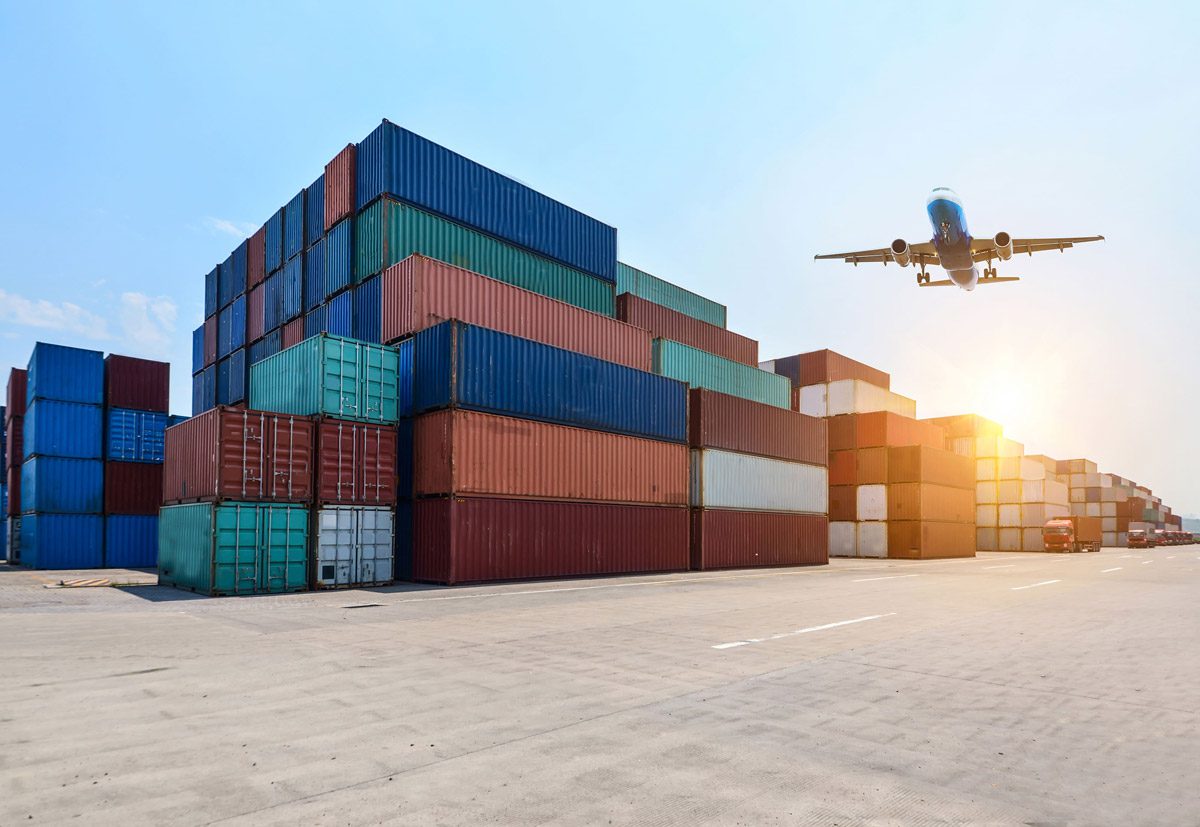
Our Services for Your Success
At American Industries, we offer turnkey solutions to help you establish and operate your manufacturing business in Mexico. We handle everything, from operational management to regulatory compliance and nearshoring support. Our services include:
- World-Class Industrial Spaces: Access to modern, customized facilities tailored to your specific needs.
- Comprehensive Production Management: Optimize your operations with tailored solutions for your industry.
- Regulatory and Legal Compliance: Expert guidance to ensure adherence to local and international regulations.
- Logistical Support: Efficient management of your supply chain and product distribution.
Strategic Location: Direct Access to the U.S. Market
Mexico offers a unique proximity to the United States, which facilitates logistics and reduces transportation times. This strategic location allows companies to leverage nearshoring, optimizing both distribution and production while maintaining low costs. At American Industries, we help businesses establish operations in Mexico, taking advantage of this proximity to enhance supply chain efficiency.

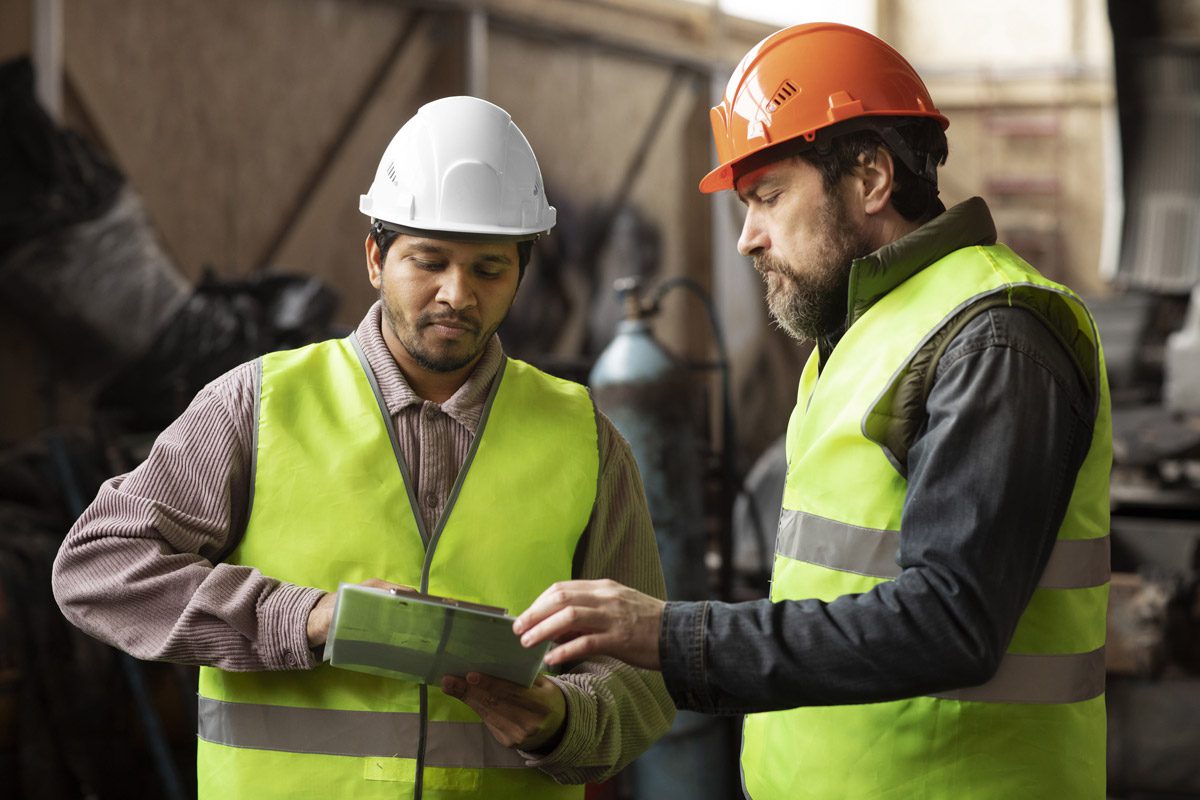
Reducing Operational Costs: Maximizing Profitability in Production
Mexico is renowned for its competitive labor and resource costs, enabling companies to significantly lower operational expenses without compromising on quality. Additionally, the Mexican government offers fiscal incentives and other economic benefits to attract foreign investment, making Mexico an ideal location to optimize production and improve profit margins.
Robust Infrastructure and Local Supplier Network
Mexico boasts an advanced industrial infrastructure, including world-class industrial parks, access ports, and a network of high-quality local suppliers. This allows companies to leverage nearby resources and establish an efficient operation with no supply chain disruptions. Our team at American Industries connects you with the best local suppliers, streamlining the installation and production process.
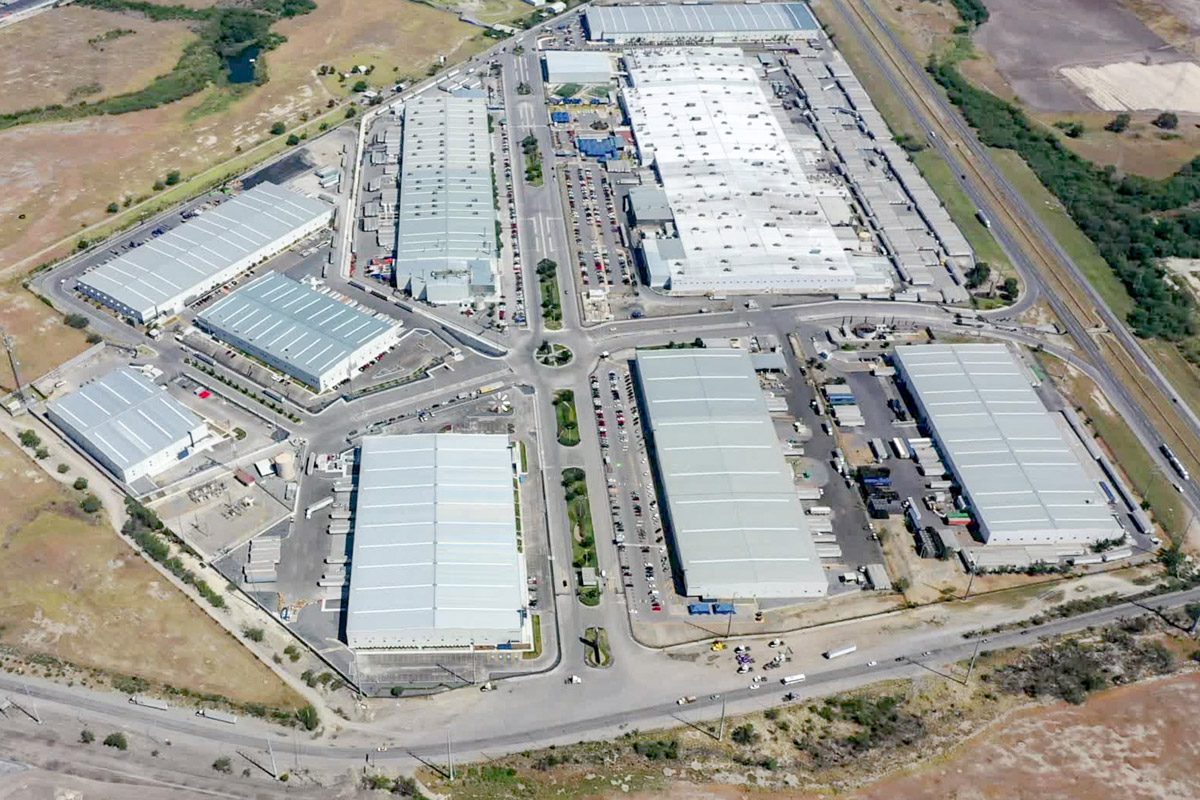
COMMON INDUSTRIES FOR MANUFACTURING IN MEXICO
Top 10 Reasons to Consider Manufacturing in Mexico: At a Glance
Here’s a quick summary of the key advantages that make manufacturing in Mexico a competitive edge for your business:
Establish Your Manufacturing Operation in Mexico Today
Discover how we can help you optimize your production and take full advantage of the benefits of manufacturing in Mexico. Request a free consultation and begin your journey toward success.
Frequently Asked Questions
If you are interested in manufacturing in Mexico, please fill out this form or contact us at:
US toll-free:+1 (877) 698 3905
Attention hours from Mon to Fri 9:00 - 18:00 CST
Please note that we do not accept job applications here. If you are interested in applying for a position, please visit the following link: https://jobs.americanindustriesgroup.com/










